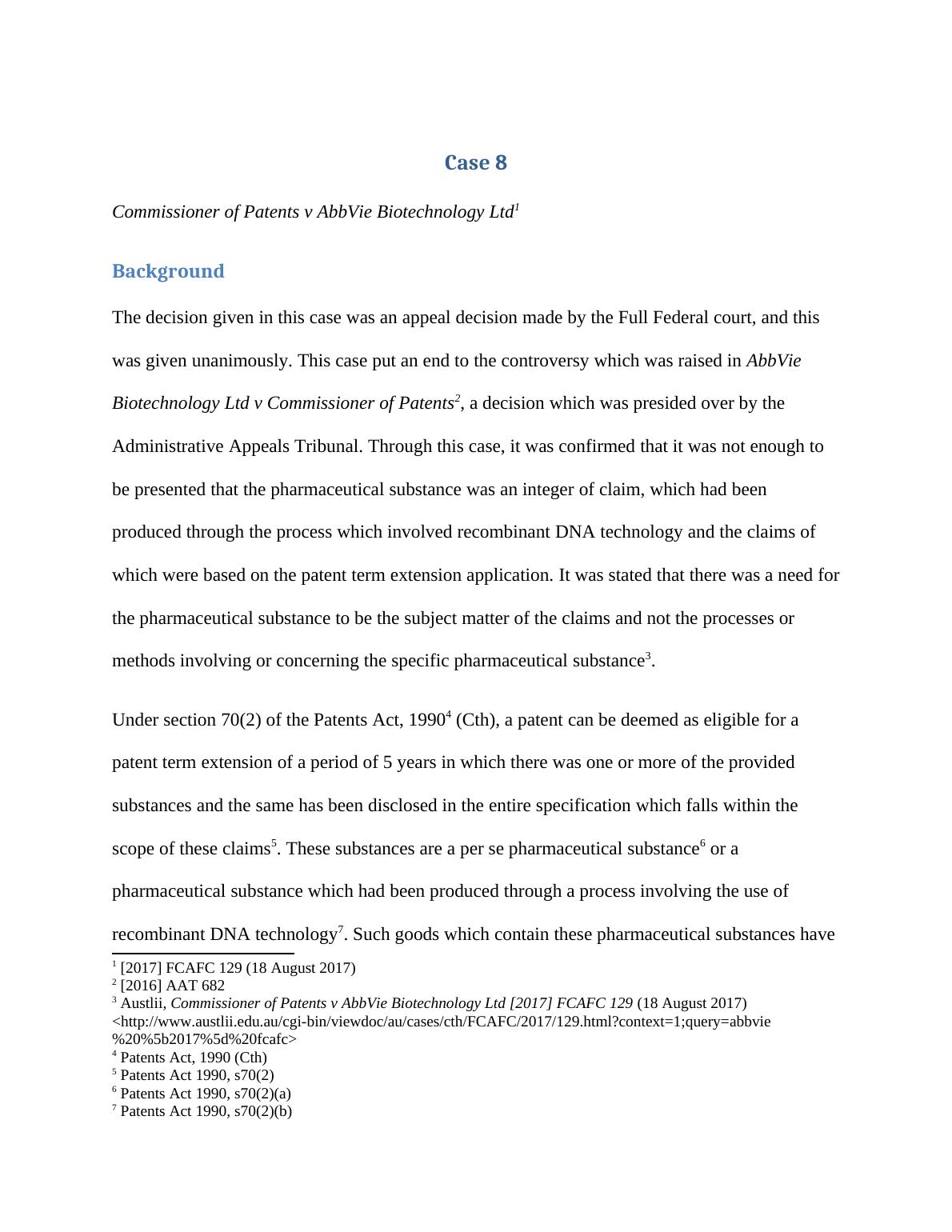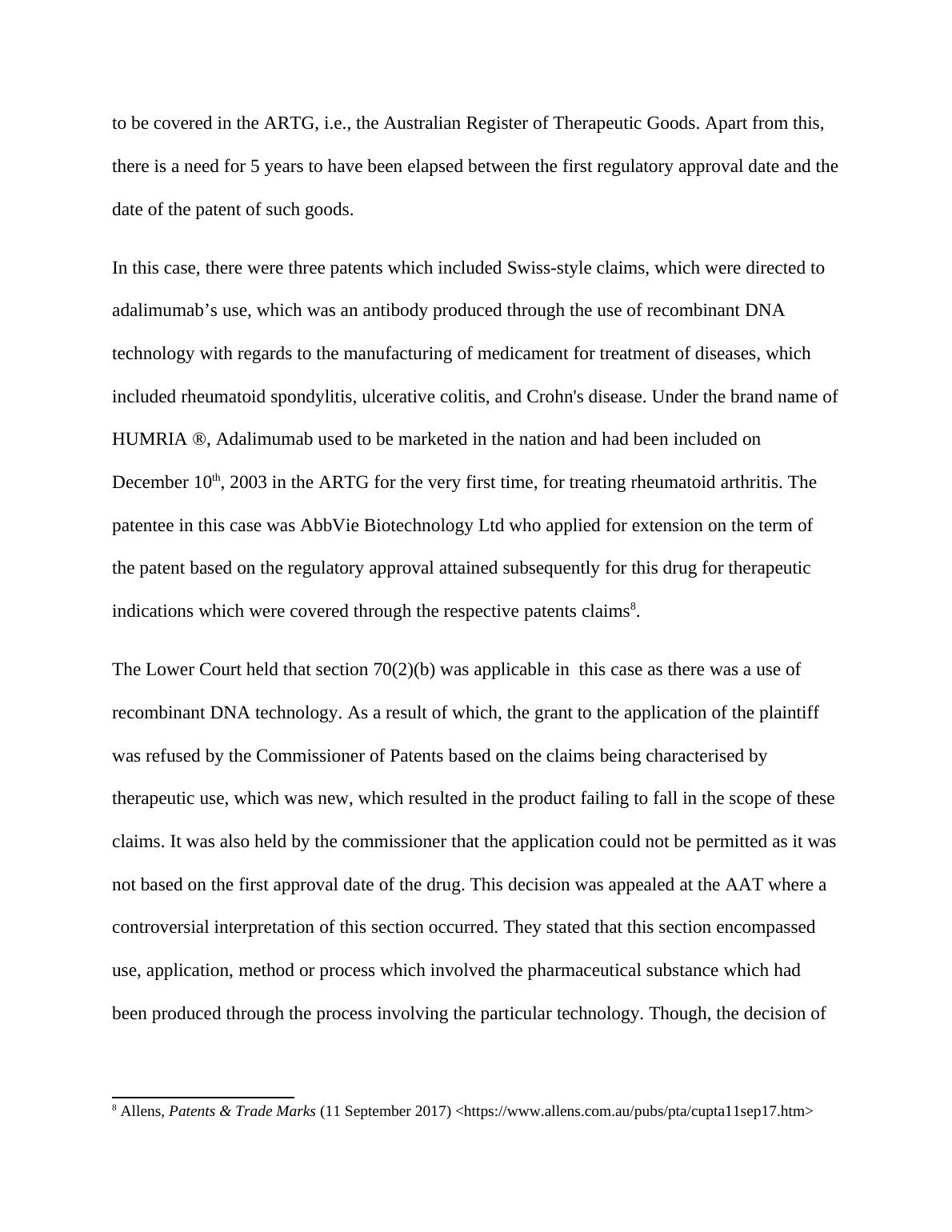Ask a question from expert
Case 8 Commissioner of Patents v AbbVie Biotechnology Ltd Background
5 Pages1154 Words203 Views
Added on 2020-05-11
About This Document
Through this case, it was confirmed that it was not enough to be presented that the pharmaceutical substance was an integer of claim, which had been produced through the process which involved recombinant DNA technology and the claims of which were based on the patent term extension application. Under section 70(2) of the Patents Act, 1990 (Cth), a patent can be deemed as eligible for a patent term extension of a period of 5 years in which there was one or more of the provided substances and the same
Case 8 Commissioner of Patents v AbbVie Biotechnology Ltd Background
Added on 2020-05-11
BookmarkShareRelated Documents
End of preview
Want to access all the pages? Upload your documents or become a member.

